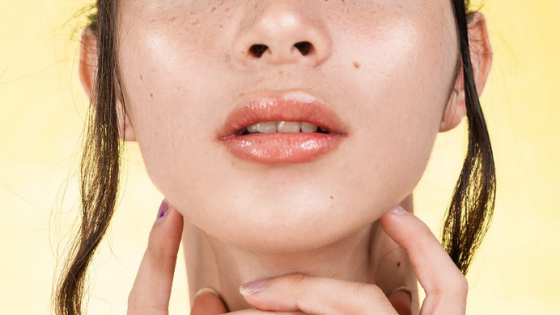


Sebum is the oil produced by the skin and is made up of various fats (lipids).
You’ve probably noticed that oily skin and oily hair go hand in hand. Because sebum is released by small glands (sebaceous glands) in our hair follicles, this is the case. Sebaceous glands are located in the dermis, which is the deepest layer of the skin.
Our skin generates this oil for three reasons:
– It contains antioxidants that protect the skin from the sun’s UV rays.
– It helps to keep “bad” germs at bay.
– It aids the skin’s recovery from wounds and infections.
The more oil-producing glands grow in size, the more oil they create (naturally!). The quality of food decreases as the amount grows, especially if the body isn’t getting adequate nutrients.
Because the oil is of lower quality:
– it includes less antioxidants that protect the skin.
– Infections have become more vulnerable to the skin (like acne).
– Inflammation of the skin (cysts, for example) is also a possibility.
So, what causes these glands to grow in size?
#1 Diet
The volume and quality of sebum production might be influenced by our diet. A high-fat or high-carbohydrate diet has been linked to an increase in sebum production on the skin.
#2 Hormonal Issues
Hormonal abnormalities can cause the sebaceous glands to expand. This is most likely why women with Polycystic Ovary Syndrome frequently have skin issues.
#3 Overexposure to the sun
Free radicals can be generated when squalene, one of the lipids found in sebum, is exposed to UV radiation from the sun, causing damage to skin cells and their DNA. This causes the skin to expand, causing the glands to enlarge as well.
Solution for oily skin
#1 Healthy Lifestyle
A healthy lifestyle, including enough exercise and sleep, can help balance our hormones, which can subsequently help us get rid of hormone-related skin issues.
#2 Nutrition
While a balanced diet is beneficial in general, several foods are especially beneficial for oily skin and associated problems:
-a) Omeg 3 Fatty Acids
These are very essential for sebum production. 7 Although extra sebum is undesirable, these fatty acids actually increase the oil’s quality. They may also aid in the reduction of sebaceous gland size. Omega 3 fatty acids may be found in salmon, tuna, almonds, soy beans and avocados.
-b) Vitamin E
Vitamin E is required by the skin to aid in the fight against free radical damage. So, consume a lot of vitamin E-rich foods like almonds, spinach and tofu.
-c) Omega 6 Fatty Acids
Supplementing with an omega-6 fatty acid (GLA from Evening Primrose Oil) can help the sebaceous glands operate properly.
For customized nutrition plan reach out to us at +91-9743430000 or write to us at www.quanutrition.com.
Ryan Fernando is an Award-winning celebrity Sports Nutritionist with 2GUINNESS world record and 2 Olympic medals under his belt. His client list include Olympic wrestler Sushil Kumar, cricketer Shikhar Dhawan & bollywood superstars Aamir Khan & Abhishek Bachchan. He is Chief Nutritionist at QUA Nutrition Signature Clinics.
©2023 All Rights Reserved Ryan Fernando. Designed and Developed by Floral Web Services